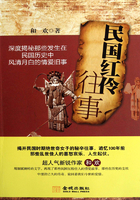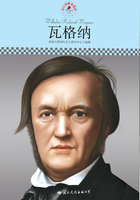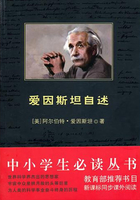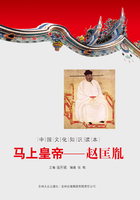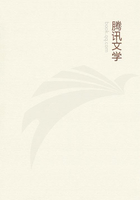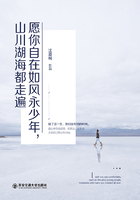1797
Effect of the 18th Fructidor on the peace-The standard of the army of Italy-Honours rendered to the memory of General Hoche and of Virgil at Mantua-Remarkable letter-In passing through Switzerland Bonaparte visits the field of Morat-Arrival at Rastadt-Letter from the Directory calling Bonaparte to Paris-Intrigues against Josephine-Grand ceremony on the reception of Bonaparte by the Directory-The theatres-Modesty of Bonaparte-An assassination- Bonaparte's opinion of the Parisians-His election to the National Institute-Letter to Camus-Projects-Reflections.
The day of the 18th Fructidor had, without any doubt, mainly contributed to the conclusion of peace at Campo Formio. On the one hand, the Directory, hitherto not very pacifically inclined, after having effected a 'coup d'etat', at length saw the necessity of appeasing the discontented by giving peace to France. On the other hand, the Cabinet of Vienna, observing the complete failure of all the royalist plots in the interior, thought it high time to conclude with the French Republic a treaty which, notwithstanding all the defeats Austria had sustained, still left her a preponderating influence over Italy.
Besides, the campaign of Italy, so fertile in glorious achievements of arms, had not been productive of glory alone. Something of greater importance followed these conquests. Public affairs had assumed a somewhat unusual aspect, and a grand moral influence, the effect of victories and of peace, had begun to extend all over France. Republicanism was no longer so sanguinary and fierce as it had been some years before. Bonaparte, negotiating with princes and their ministers on a footing of equality, but still with all that superiority to which victory and his genius entitled him, gradually taught foreign courts to be familiar with Republican France, and the Republic to cease regarding all States governed by Kings as of necessity enemies.
In these circumstances the General-in-Chief's departure and his expected visit to Paris excited general attention. The feeble Directory was prepared to submit to the presence of the conqueror of Italy in the capital.
It was for the purpose of acting as head of the French legation at the Congress of Rastadt that Bonaparte quitted Milan on the 17th of November. But before his departure he sent to the Directory one of those monuments, the inscriptions on which may generally be considered as fabulous, but which, in this case, were nothing but the truth. This monument was the "flag of the Army of Italy," and to General Joubert was assigned the honourable duty of presenting it to the members of the Executive Government.
On one side of the flag were the words "To the Army of Italy, the grateful country." The other contained an enumeration of the battles fought and places taken, and presented, in the following inscriptions, a simple but striking abridgment of the history of the Italian campaign.
150,000 PRISONERS; 170 STANDARDS; 550 PIECES OF SIEGE ARTILLERY;600 PIECES OF FIELD ARTILLERY; FIVE PONTOON EQUIPAGES; NINE 64-GUN SHIPS; TWELVE 32-GUN FRIGATES; 12 CORVETTES; 18 GALLEYS; ARMISTICE WITH THE KING OF SARDINIA; CONVENTION WITH GENOA; ARMISTICE WITH THE DUKE OF PARMA; ARMISTICE WITH THE KING OF NAPLES; ARMISTICE WITH THE POPE; PRELIMINARIES OF LEOBEN; CONVENTION OF MONTEBELLO WITH THE REPUBLIC OF GENOA; TREATY OF PEACE WITH THE EMPEROR OF GERMANY AT CAMPO-FORMIO.
LIBERTY GIVEN TO THE PEOPLE OF BOLOGNA, FERRARA, MODENA, MASSA-CARRARA, LA ROMAGNA, LOMBARD, BRESCIA, BERGAMO, MANTUA, CREMONA.
PART OF THE VERONESE, CHIAVENA, BORMIO, THE VALTELINE, THE GENOESE, THE IMPERIAL FIEFS, THE PEOPLE OF THE DEPARTMENTS OF CORCYRA, OF THE AEGEAN SEA, AND OF ITHACA.
SENT TO PARIS ALL THE MASTERPIECES OF MICHAEL ANGELO, OF GVERCINO, OF TITIAN, OF PAUL VERONESE, OF CORREGGIO, OF ALBANA, OF THE CARRACCI, OF RAPHAEL, AND OF LEONARDO DA VINCI.
Thus were recapitulated on a flag, destined to decorate the Hall of the Public Sittings of the Directory, the military deeds of the campaign in Italy, its political results, and the conquest of the monuments of art.
Most of the Italian cities looked upon their conqueror as a liberator-such was the magic of the word liberty, which resounded from the Alps to the Apennines. On his way to Mantua the General took up his residence in the palace of the ancient dukes. Bonaparte promised the authorities of Mantua that their department should be one of the most extensive; impressed on them the necessity of promptly organising a local militia, and of putting in execution the plans of Mari, the mathematician, for the navigation of the Mincio from Mantua to Peschiera.
He stopped two days at Mantua, and the morrow of his arrival was devoted to the celebration of a military funeral solemnity, in honour of General Hoche, who had just died. His next object was to hasten the execution of the monument which was erecting to the memory of Virgil. Thus, in one day, he paid honour to France and Italy, to modern and to ancient glory, to the laurels of war and to the laurels of poetry.
A person who saw Bonaparte on this occasion for the first time thus described him in a letter he wrote to Paris:-"With lively interest and extreme attention I have observed this extraordinary man, who has performed such great deeds, and about whom there is something which seems to indicate that his career is not yet terminated. I found him very like his portraits-little, thin, pale, with an air of fatigue, but not of ill-health, as has been reported of him. He appears to me to listen with more abstraction than interest, and that he was more occupied with what he was thinking of than with what was said to him. There is great intelligence in his countenance, along with which may be marked an air of habitual meditation, which reveals nothing of what is passing within. In that thinking head, in that bold mind, it is impossible not to believe that some daring designs are engendering which will have their influence an the destinies of Europe."
From the last phrase, in particular, of this letter, one might suspect that it was written after Bonaparte had made his name feared throughout Europe; but it really appeared in a journal in the month of December 1797, a little before his arrival in Paris.
There exists a sort of analogy between celebrated men and celebrated places; it was not, therefore, an uninteresting spectacle to see Bonaparte surveying the field of Morat, where, in 1476, Charles the Bold, Duke of Burgundy, daring like himself, fell with his powerful army under the effects of Helvetian valour. Bonaparte slept during the night at Maudon, where, as in every place through which he passed, the greatest honours were paid him. In the morning, his carriage having broken down, we continued our journey an foot, accompanied only by some officers and an escort of dragoons of the country. Bonaparte stopped near the Ossuary, and desired to be shown the spot where the battle of Morat was fought. A plain in front of the chapel was pointed out to him. An officer who had served in France was present, and explained to him how the Swiss, descending from the neighbouring mountains, were enabled, under cover of a wood, to turn the Burgundian army and put it to the rout. "What was the force of that army?" asked Bonaparte.-"Sixty thousand men."-"Sixty thousand men!" he exclaimed: "they ought to have completely covered these mountains!"-"The French fight better now," said Lannes, who was one of the officers of his suite. "At that time," observed Bonaparte, interrupting him, "the Burgundians were not Frenchmen."
Bonaparte's journey through Switzerland was not without utility; and his presence served to calm more than one inquietude. He proceeded on his journey to Rastadt by Aix in Savoy, Berne, and Bale. On arriving at Berne during night we passed through a double file of well-lighted equipages, filled with beautiful women, all of whom raised the cry of "Long live, Bonaparte!-long live the Pacificator!" To have a proper idea of this genuine enthusiasm it is necessary to have seen it.
The position in society to which his services had raised him rendered it unfit to address him in the second person singular and the familiar manner sometimes used by his old schoolfellows of Brienne. I thought, this very natural.
M. de Cominges, one of those who went with him to the military school at Paris, and who had emigrated, was at Bale. Having learned our arrival, he presented himself without ceremony, with great indecorum, and with a complete disregard of the respect due to a man who had rendered himself so illustrious. General Bonaparte, offended at this behaviour, refused to receive him again, and expressed himself to me with much warmth on the occasion of this visit. All my efforts to remove his displeasure were unavailing, this impression always continued, and he never did for M. de Cominges what his means and the old ties of boyhood might well have warranted.
On arriving at Rastadt
-[The conference for the formal peace with the Empire of Germany was held there. The peace of Leoben was only one made with Austria.]
Bonaparte found a letter from the Directory summoning him to Paris. He eagerly obeyed this invitation, which drew him from a place where he could act only an insignificant part, and which he had determined to leave soon, never again to return. Some time after his arrival in Paris, on the ground that his presence was necessary for the execution of different orders, and the general despatch of business, he required that authority should be given to a part of his household, which he had left at Rastadt, to return.
How could it ever be said that the Directory "kept General Bonaparte away from the great interests which were under discussion at Rastadt"? Quite the contrary! The Directory would have been delighted to see him return there, as they would then have been relieved from his presence in Paris; but nothing was so disagreeable to Bonaparte as long and seemingly interminable negotiations. Such tedious work did not suit his character, and he had been sufficiently disgusted with similar proceedings at Campo-Formio.
On our arrival at Rastadt I soon found that General Bonaparte was determined to stay there only a short time. I therefore expressed to him my decided desire to remain in Germany. I was then ignorant that my erasure from the emigrant list had been ordered on the 11th of November, as the decree did not reach the commissary of the Executive Directory at Auxerre until the 17th of November, the day of our departure from Milan.
The silly pretext of difficulties by which my erasure, notwithstanding the reiterated solicitations of the victorious General, was so long delayed made me apprehensive of a renewal, under a weak and jealous pentarchy, of the horrible scenes of 1796. Bonaparte said to me, in atone of indignation, "Come, pass the Rhine; they will not dare to seize you while near me. I answer for your safety." On reaching Paris I found that my erasure had taken place. It was at this period only that General Bonaparte's applications in my favour were tardily crowned with success. Sotin, the Minister of General Police, notified the fact to Bonaparte; but his letter gave a reason for my erasure very different from that stated in the decree. The Minister said that the Government did not wish to leave among the names of traitors to their country the name of a citizen who was attached to the person of the conqueror of Italy; while the decree itself stated as the motive for removing my name from the list that I never had emigrated.
At St. Helena it seems Bonaparte said that he did not return from Italy with more than 300,000 francs; but I assert that he had at that time in his possession something more than 3,000,000.
-[Joseph says that Napoleon, when he exiled for Egypt, left with him all his fortune, and that it was much nearer 300,000 francs than 3,000,000. (See Erreurs, tome i. pp. 243, 259)]
How could he with 300,000 francs have been able to provide for the extensive repairs, the embellishment, and the furnishing of his house in the Rue Chantereine? How could he have supported the establishment he did with only 15,000 francs of income and the emoluments of his rank? The excursion which he made along the coast, of which I have yet to speak, of itself cost near 12,000 francs in gold, which he transferred to me to defray the expense of the journey; and I do not think that this sum was ever repaid him. Besides, what did it signify, for any object he might have in disguising his fortune, whether he brought 3,000,000 or 300,000 francs with him from Italy? No one will accuse him of peculation. He was an inflexible administrator. He was always irritated at the discovery of fraud, and pursued those guilty of it with all the vigour of his character. He wished to be independent, which he well knew that no one could be without fortune. He has often said to me, "I am no Capuchin, not I." But after having been allowed only 300,000 francs on his arrival from the rich Italy, where fortune never abandoned him, it has been printed that he had 20,000,000 (some have even doubled the amount) on his return from Egypt, which is a very poor country, where money is scarce, and where reverses followed close upon his victories. All these reports are false. What he brought from Italy has just been stated, and it will be seen when we come to Egypt what treasure he carried away from the country of the Pharaohs.
Bonaparte's brothers, desirous of obtaining complete dominion over his mind, strenuously endeavoured to lessen the influence which Josephine possessed from the love of her husband. They tried to excite his jealousy, and took advantage of her stay at Milan after our departure, which had been authorised by Bonaparte himself. My intimacy with both the husband and the wife fortunately afforded me an opportunity of averting or lessening a good deal of mischief. If Josephine still lived she would allow me this merit. I never took part against her but once, and that unwillingly. It was on the subject of the marriage of her daughter Hortense. Josephine had never as yet spoken to me on the subject. Bonaparte wished to give his stepdaughter to Duroc, and his brothers were eager to promote the marriage, because they wished to separate Josephine from Hortense, for whom Bonaparte felt the tenderest affection. Josephine, on the other hand, wished Hortense to marry Louis Bonaparte. Her motives, as may easily be divined, were to, gain support in a family where she experienced nothing but enmity, and she carried her point.
-[Previous to her marriage with Louis, Hortense cherished an attachment for Duroc, who was at that time a handsome man about thirty, and a great favourite of Bonaparte. However, the indifference with which Duroc regarded the marriage of Louis Bonaparte sufficiently proves that the regard with which he had inspired Hortense was not very ardently returned. It is certain that Duroc might have become the husband of Mademoiselle de Beauharnais had he been willing to accede to the conditions on which the First Consul offered him his step-daughter's hand. But Duroc looked forward to something better, and his ordinary prudence forsook him at a moment when he might easily have beheld a perspective calculated to gratify even a more towering ambition than his. He declined the proposed marriage; and the union of Hortense and Louis, which Madame Bonaparte, to conciliate the favour of her brothers-in-law, had endeavoured to bring about, was immediately determined on (Memoires de Constant).
In allusion to the alleged unfriendly feeling of Napoleon's brothers towards Josephine, the following observation occurs in Joseph Bonaparte's Notes on Bourrienne:
"None of Napoleon's brothers," he says, "were near him from the time of his departure for Italy except Louis who cannot be suspected of having intrigued against Josephine, whose daughter he married.
These calumnies are without foundation" (Erreurs, tome i. p. 244)]
On his arrival from Rastadt the most magnificent preparations were made at the Luxembourg for the reception of Bonaparte. The grand court of the Palace was elegantly ornamented; and at its farther end, close to the Palace, a large amphitheatre was erected for the accommodation of official persons. Curiosity, as on all like occasions, attracted multitudes, and the court was filled. Opposite to the principal vestibule stood the altar of the country, surrounded by the statues of Liberty, Equality, and Peace. When Bonaparte entered every head was uncovered. The windows were full of young and beautiful females. But notwithstanding this great preparation an icy coldness characterized the ceremony. Every one seemed to be present only for the purpose of beholding a sight, and curiosity was the prevailing expression rather than joy or gratitude. It is but right to say, however, that an unfortunate event contributed to the general indifference. The right wing of the Palace was not occupied, but great preparations had been making there, and an officer had been directed to prevent anyone from ascending. One of the clerks of the Directory, however, contrived to get upon the scaffolding, but had scarcely placed his foot on the first plank when it tilted up, and the imprudent man fell the whole height into the court. This accident created a general stupor. Ladies fainted, and the windows were nearly deserted.
However, the Directory displayed all the Republican splendour of which they were so prodigal on similar occasions. Speeches were far from being scarce. Talleyrand, who was then Minister for Foreign Affairs, on introducing Bonaparte to the Directory, made a long oration, in the course of which he hinted that the personal greatness of the General ought not to excite uneasiness, even in a rising Republic. "Far from apprehending anything from his ambition, I believe that we shall one day be obliged to solicit him to tear himself from the pleasures of studious retirement. All France will be free, but perhaps he never will; such is his destiny."
Talleyrand was listened to with impatience, so anxious was every one to hear Bonaparte. The conqueror of Italy then rose, and pronounced with a modest air, but in a firm voice, a short address of congratulation on the improved position of the nation.
Barras, at that time President of the Directory, replied to Bonaparte with so much prolixity as to weary everyone; and as soon as he had finished speaking he threw himself into the arms of the General, who was not much pleased with such affected displays, and gave him what was then called the fraternal embrace. The other members of the Directory, following the example of the President, surrounded Bonaparte and pressed him in their arms; each acted, to the best of his ability, his part in the sentimental comedy.
Chenier composed for this occasion a hymn, which Mehul set to music. A few days after an opera was produced, bearing the title of the 'Fall of Carthage', which was meant as an allusion to the anticipated exploits of the conqueror of Italy, recently appointed to the command of the "Army of England." The poets were all employed in praising him; and Lebrun, with but little of the Pindaric fire in his soul, composed the following distich, which certainly is not worth much:
"Heros, cher a la paix, aux arts, a la victoire
Il conquit en deux ans mille siecles de gloire."
The two councils were not disposed to be behind the Directory in the manifestation of joy. A few days after they gave a banquet to the General in the gallery of the Louvre, which had recently been enriched by the masterpieces of painting conquered in Italy.
At this time Bonaparte displayed great modesty in all his transactions in Paris. The administrators of the department of the Seine having sent a deputation to him to inquire what hour and day he would allow them to wait on him, he carried himself his answer to the department, accompanied by General Berthier. It was also remarked that the judge of the peace of the arrondissement where the General lived having called on him on the 6th of December, the evening of his arrival, he returned the visit next morning. These attentions, trifling as they may appear, were not without their effect on the minds of the Parisians.
In consequence of General Bonaparte's victories, the peace he had effected, and the brilliant reception of which he had been the object, the business of Vendemiaire was in some measure forgotten. Every one was eager to get a sight of the young hero whose career had commenced with so much 'eclat'. He lived very retiredly, yet went often to the theatre. He desired me, one day, to go and request the representation of two of the best pieces of the time, in which Elleviou, Mesdames St. Aubin, Phillis, and other distinguished performers played. His message was, that he only wished these two pieces on the same night, if that were possible. The manager told me that nothing that the conqueror of Italy wished for was impossible, for he had long ago erased that word from the dictionary. Bonaparte laughed heartily at the manager's answer. When we went to the theatre he seated himself, as usual, in the back of the box, behind Madame Bonaparte, making me sit by her side. The pit and boxes, however, soon found out that he was in the house, and loudly called for him. Several times an earnest desire to see him was manifested, but all in vain, for he never showed himself.
Some days after, being at the Theatre des Arts, at the second representation of 'Horatius Cocles', although he was sitting at the back of a box in the second tier, the audience discovered that he was in the house. Immediately acclamations arose from all quarters; but he kept himself concealed as much as possible, and said to a person in the next box, "Had I known that the boxes were so exposed, I should not have come."
During Bonaparte's stay at Paris a woman sent a messenger to warn him that his life would be attempted, and that poison was to be employed for that purpose. Bonaparte had the bearer of this information arrested, who went, accompanied by the judge of the peace, to the woman's house, where she was found extended on the floor, and bathed in her blood. The men whose plot she had overheard, having discovered that she had revealed their secret, murdered her. The poor woman was dreadfully mangled: her throat was cut; and, not satisfied with that, the assassins had also hacked her body with sharp instruments.
On the night of the 10th of Niv?se the Rue Chantereine, in which Bonaparte had a small house (No. 6), received, in pursuance of a decree of the department, the name of Rue de la Victoire. The cries of "Vive Bonaparte!" and the incense prodigally offered up to him, did not however seduce him from his retired habits. Lately the conqueror and ruler of Italy, and now under men for whom he had no respect, and who saw in him a formidable rival, he said to me one day, "The people of Paris do not remember anything. Were I to remain here long, doing nothing, I should be lost. In this great Babylon one reputation displaces another. Let me be seen but three times at the theatre and I shall no longer excite attention; so I shall go there but seldom." When he went he occupied a box shaded with curtains. The manager of the opera wished to get up a special performance in his honour; but he declined the offer. When I observed that it must be agreeable to him to see his fellow-citizens so eagerly running after him, he replied, "Bah! the people would crowd as fast to see me if I were going to the scaffold."
-[A similar remark made to William III. on his lending at Brixham elicited the comment, "Like the Jews, who cried one day 'Hosanna!' and the next 'Crucify Him! crucify Him!'"]
On the 28th of December Bonaparte was named a member of the Institute, in the class of the Sciences and arts.
-[Napoleon seems to have really considered this nomination as a great honour. He was fond of using the title in his proclamations; and to the last the allowance attached to the appointment figured in the Imperial accounts. He replaced Carnot, the exiled Director.]
He showed a deep sense of this honour, and wrote the following letter to Camus; the president of the class:
CITIZEN PRESIDENT-The suffrage of the distinguished men who compose the institute confers a high honour on me. I feel well assured that, before I can be their equal, I must long be their scholar. If there were any way more expressive than another of making known my esteem for you, I should be glad to employ it. True conquests-the only ones which leave no regret behind them-are those which are made over ignorance. The most honourable, as well as the most useful, occupation for nations is the contributing to the extension of human knowledge. The true power of the French Republic should henceforth be made to consist in not allowing a single new idea to exist without making it part of its property.
BONAPARTE.
The General now renewed, though unsuccessfully, the attempt he had made before the 18th Fructidor to obtain a dispensation of the age necessary for becoming a Director. Perceiving that the time was not yet favourable for such a purpose, he said to me, on the 29th of January 1798, "Bourrienne, I do not wish to remain here; there is nothing to do. They are unwilling to listen to anything. I see that if I linger here, I shall soon lose myself. Everything wears out here; my glory has already disappeared. This little Europe does not supply enough of it for me. I must seek it in the East, the fountain of glory. However, I wish first to make a tour along the coast, to ascertain by my own observation what may be attempted. I will take you, Lannes, and Sulkowsky, with me. If the success of a descent on England appear doubtful, as I suspect it will, the army of England shall become the army of the East, and I will go to Egypt."
This and other conversations give a correct insight into his character. He always considered war and conquest as the most noble and inexhaustible source of that glory which was the constant object of his desire. He revolted at the idea of languishing in idleness at Paris, while fresh laurels were growing for him in distant climes. His imagination inscribed, in anticipation, his name on those gigantic monuments which alone, perhaps, of all the creations of man, have the character of eternity. Already proclaimed the most illustrious of living generals, he sought to efface the rival names of antiquity by his own. If Caesar fought fifty battles, he longed to fight a hundred-if Alexander left Macedon to penetrate to the Temple of Ammon, he wished to leave Paris to travel to the Cataracts of the Nile. While he was thus to run a race with fame, events would, in his opinion, so proceed in France as to render his return necessary and opportune. His place would be ready for him, and he should not come to claim it a forgotten or unknown man.

